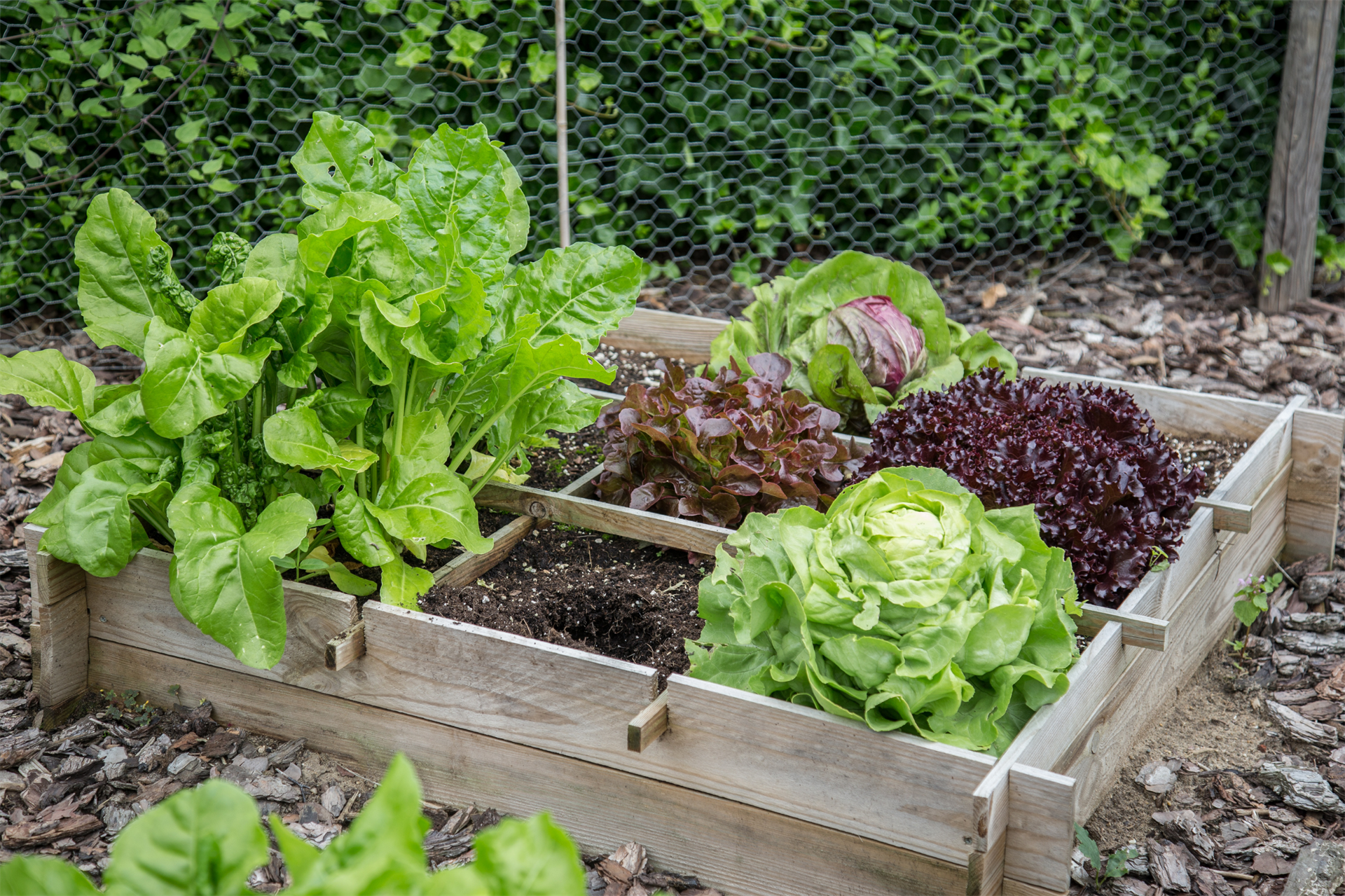
Follow Up: July Florida Food Forum
Urban Agriculture Policies Programs
If you were unable to attend the meeting, watch the full presentation online here.
To keep the conversation going, please add your thoughts and comments to our forum page here.
On Friday, July 30th, The Florida Food Forum on “Urban Agriculture Policy and Programs” featured Brandi Gabbard, St. Petersburg City Council District 2 City Council Member, Michael Dema, City of St. Petersburg Managing Assistant City Attorney, Elizabeth Abernethy, City of St. Petersburg Director of Planning and Development Services, Mary Helen Duke, Pasco County Planning and Development Department Principal Planner – Resiliency, Frank Starkey, Founder of People Places, LLC.
The first group of guest speakers, Brandi Gabbard, Michael Dema, and Elizabeth Abernethy, spoke about Urban Agriculture in St. Petersburg in “The St. Pete Way.”
Brandi Gabbard began by introducing the leading mission of St. Petersburg to “access to healthy, affordable food is vital for a sustainable community.” She highlighted that this is done through a number of different ways, but “urban agriculture has become one of the biggest cornerstones to this work.”
Growing up in a small town in rural Indiana, Brandi recounts her experience with food insecurity and how her experience has informed the work that she is doing with urban agriculture in St. Pete. It was after moving to St. Pete that she realized the legislative barriers that would prevent local communities from growing and selling their own produce, and that there was a lot of work to be done.
Exploring Past Policy
The second speaker, Michael Dema, gave background on some of the current legislation in place in St. Petersburg, including Ordinance 933-G (2009) and Ordinance 1029-G (2011), to address the growing interest in urban agriculture and to reflect on the shortcomings of state and local governments regarding urban agriculture policies.
Michael identified two legislative challenges to advancing local urban agriculture policies in the City of St. Pete, which were the Florida Right-to-Farm Act and countywide rules.
“What we’re trying to do here is to create an ordinance that bumps up against the maximum of what we can do under the [Florida Right-to-Farm] Act, but we also created an exemption that was passed by the state legislature this year, The Florida Urban Agriculture Act (SB 628),” he said.
“What we’re also trying to do is create a lot more opportunities for our local gardeners to sell their products at their homes, and not just have to find a farmer’s market or not limiting things to the industrial zone for our larger agricultural operations. I think we’re trying to really push this into the next tier.”
Exploring Current Policy
Elizabeth Abernethy continued the presentation by giving an overview of a package of amendments that was adopted under SB 628 in February of 2021. “Really, we are trying to take the next deep dive into our code to see if there are ways to expand production and produce in our city,” she explained.
Some of the amendments adopted under SB 628 did the following:
- Eliminating the not-for-profit requirement, extending the date of initial permit expiration, and lowering fees for Community Gardens
- Allowing as permitted use in Industrial Traditional and Industrial Suburban zoning districts, eliminating public hearings, creating Use-Specific standards to address concerns for Commercial Gardens and Greenhouses
- Allowing on-site sale of produce on residential properties
- Expanding allowances to design and setback standards to include gardening structures
- Expanding options for selling produce from vehicles and vacant properties and lowering fees
“This really encompasses the changes we made. We really try to provide this information to our community through handouts and guides,” said Elizabeth.
What’s next?
“While the efforts that culminated in the passage of our ordinance this year, we still want to do more, we think this is an opening salvo in terms of broadening up opportunities for Urban Ag in the city of St. Pete,” noted Michael.
He explained that in the future, he wants to see special exemptions for dense urban land areas from the Florida Right-to-Farm Act, in which “local governments have the power to regulate this use within their boundaries.” The benefits that come from this include economic development opportunities, an opportunity to add value to land in vacant areas, and to address food deserts.
“This will only be applicable in cities greater than 250,000 people,” he added. “Fortunately, St. Petersburg is one of those cities, along with Miami, Jacksonville, Tampa, and Orlando.”
“The work is far from done, it’s going to take a large collaboration of ideas,” remarked Brandi. She delves into the importance of projects like Commercial Community Food Forest, which is about building community, beautifying neighborhoods, and conservation. “We want to be a resource and a tool, and a way to help expand these efforts throughout the state,” she said.
The next speaker, Frank Starkey, who is a resident of New Port Richey, delved into the topic of New Urbanism.
“The reason I’m here is because I’m a New Urbanist by commitment,” he said. In his work as a New Urbanist, one of the fundamental proposals of New Urbanism is that zoning separates and undermines the cohesiveness of communities.
“What’s interesting to me about urban agriculture is that agriculture, at the same time, has become industrialized as a pursuit generally,” he added. “Now, ironically, growing food has become viewed as an industrial activity that needs to be isolated from residential uses in every way possible.” He indicated that to permit growing and selling produce, we have to go back and amend zoning ordinances and land development codes.
“What I’m engaged with currently is the City of New Port Richey has contacted me to help advise on rewriting their entire Land Development Code.” He delved into the challenges and contradictions that are embedded in Land Development Codes.
“To the proposal of New Urbanism, which is to keep development compact in order to protect rural agricultural lands, there is also a component of food production within neighborhoods that is also important and using this green space that is a part of all urban landscapes in the United States. Whether it’s window boxes or in most cases, especially here in Florida, yards, there is an immense amount of acreage of land available for food production in urban areas.”
The last speaker, Mary Helen Duke, provided a short presentation summarized by host Dell deChant, which gave an overview of the Urban Agriculture Ordinance passed in Pasco County.
“This is the organization within Pasco County that actually developed the Urban Agriculture Ordinances for the county in cooperation with Mary Helen Duke in the Planning Department,” said Dell.
Unlike the St. Petersburg model, Pasco County created a Food Policy Advisory Council (FPAC) in which the ordinances came after the development of the council.
“One thing that was very important early on in the work of the Food Policy Advisory Council (FPAC) in Pasco County was getting an idea of what the distribution system was for the locally grown material,” explained Dell. This is what led the FPAC to spearhead their initiative on surveying sample questions for their local Farmer’s Market.
Mary Helen Duke’s presentation outlined the focuses and current initiatives of the Food Policy Advisory Council, the legislation happening in Pasco County, and the processes that were followed to move forward with the Urban Agriculture Ordinance.
At the conclusion of the presentations, the forum opened up for a lively Q&A.
Watch the full recording on our YouTube channel here
Resources:
Learn more about the City of St. Petersburg on their website
Learn more about the City of New Port Richey on their website
Learn more about Pasco County and the Food Action Policy Council on their website
Access the City of Petersburg's full guide explaining the amendments to their Urban Agriculture Ordinance here
Access Mary Helen Duke's full presentation on Pasco County here.
Guest Speaker Information:
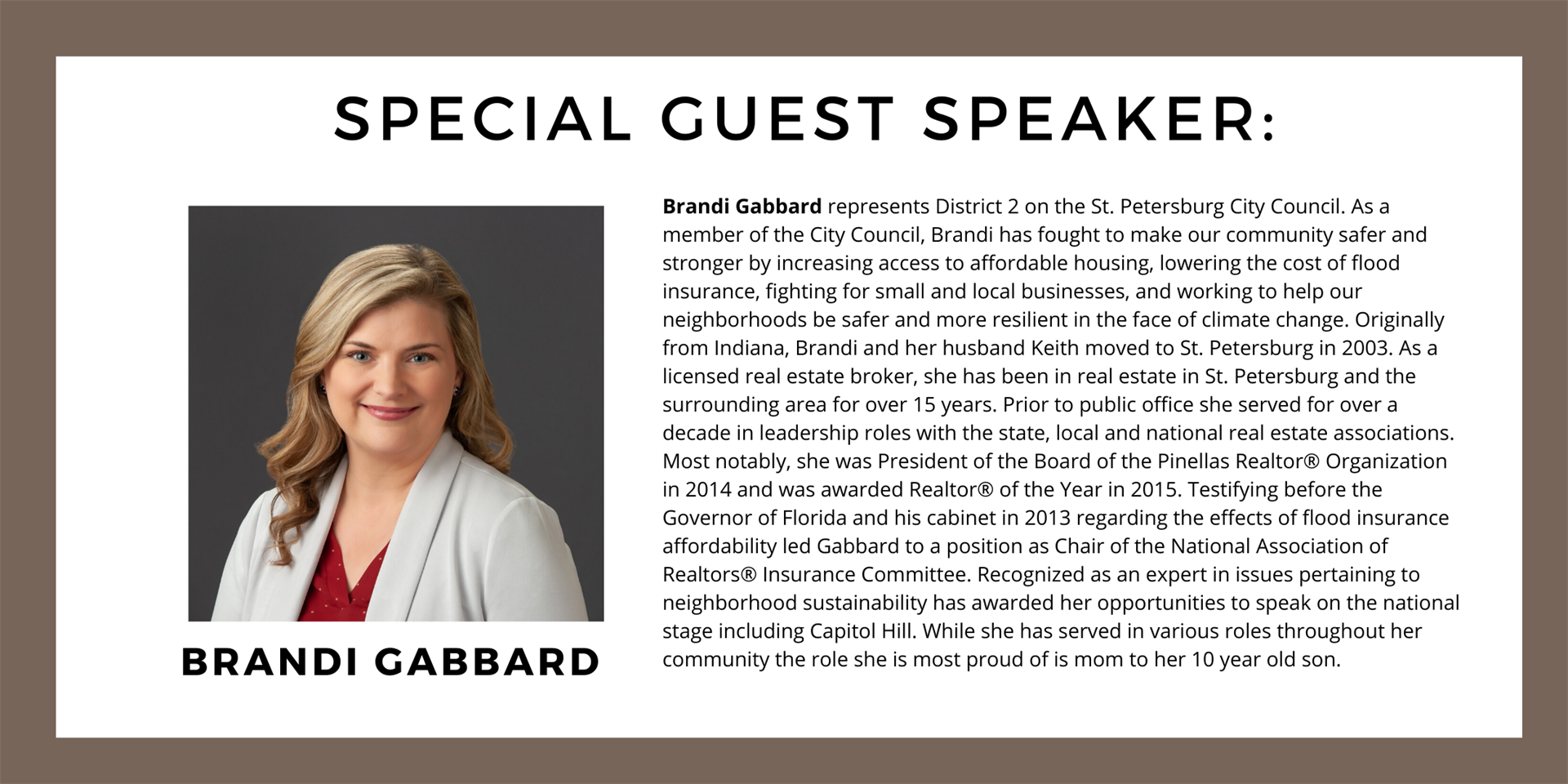
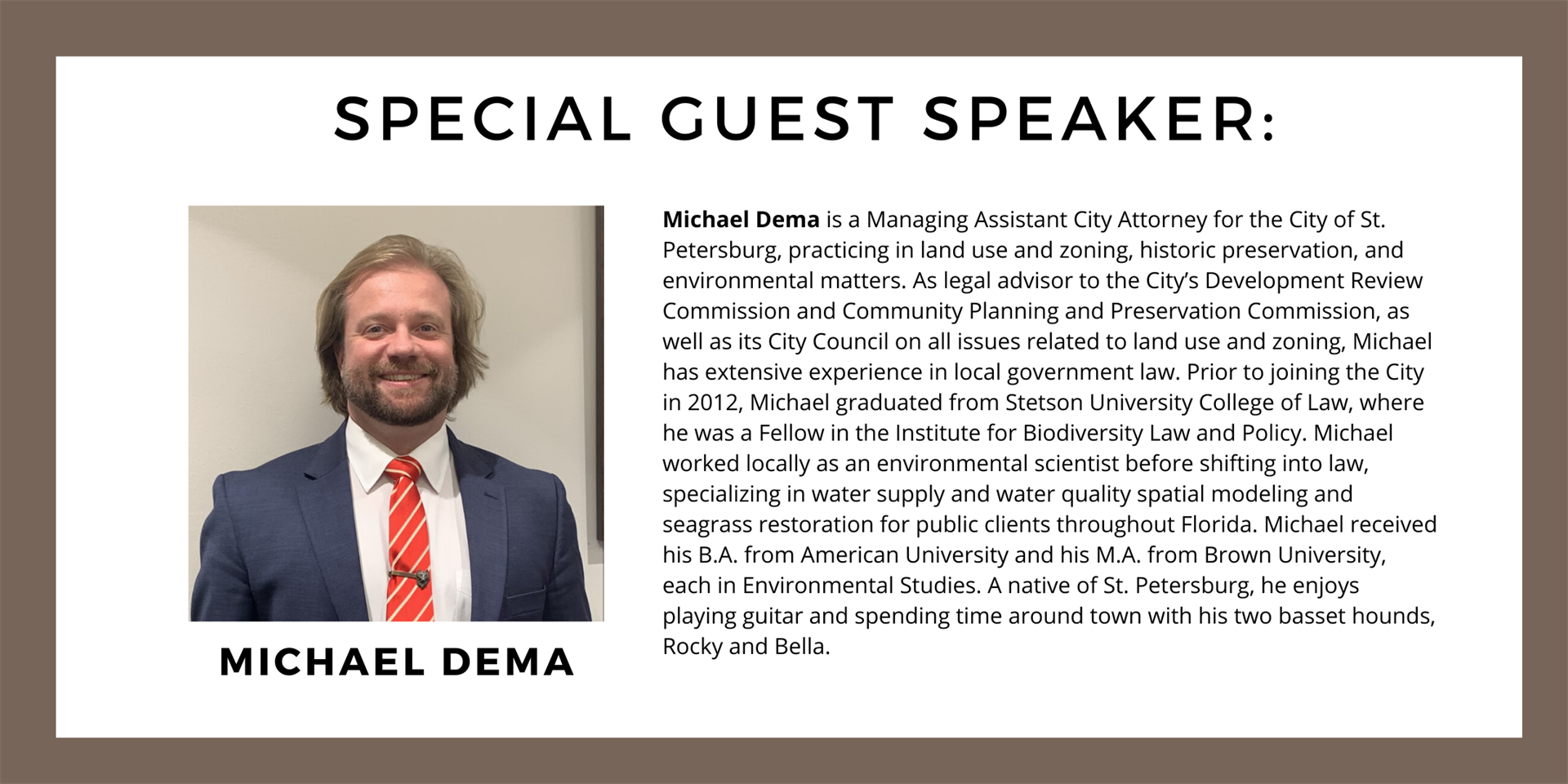
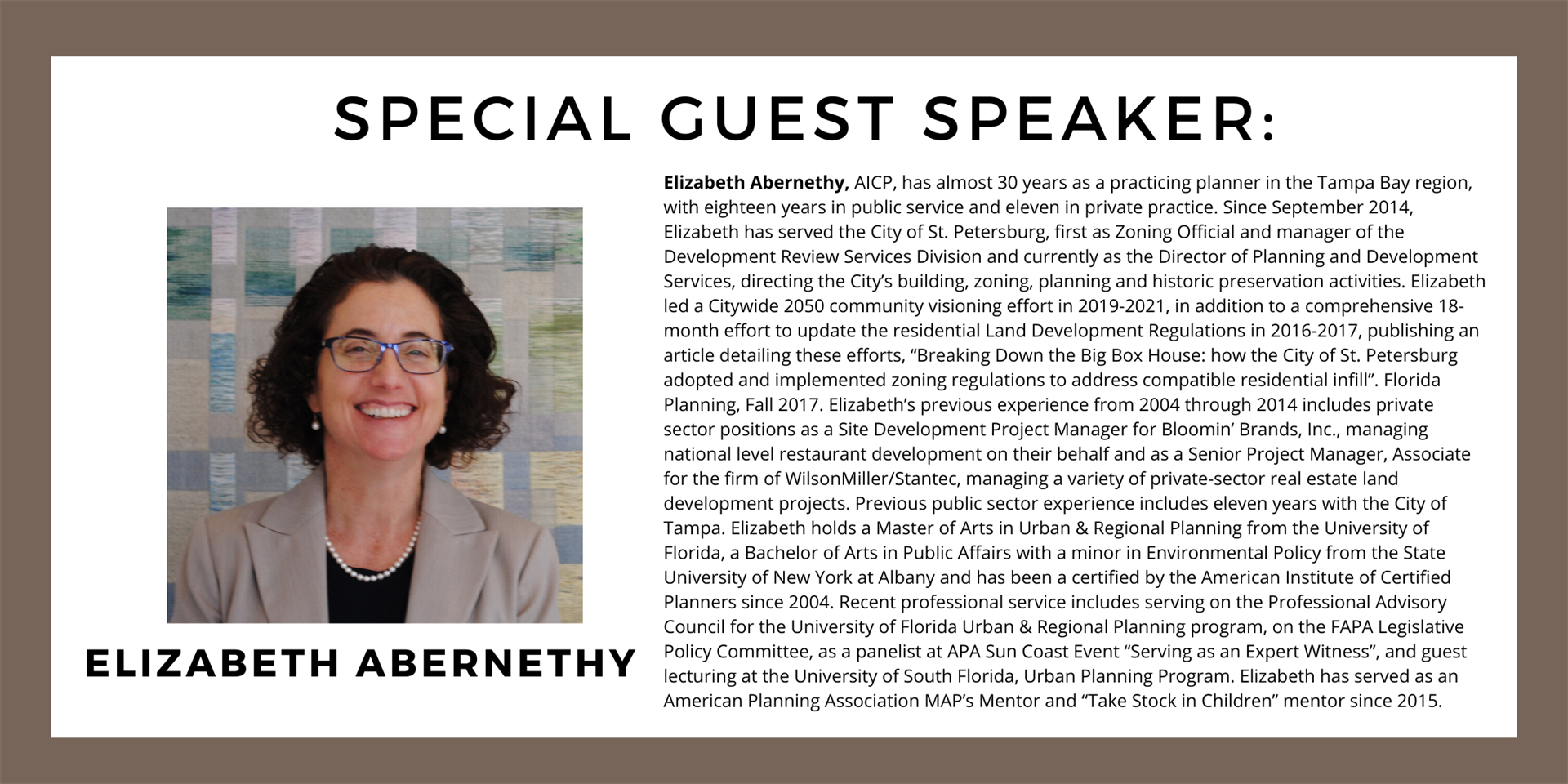
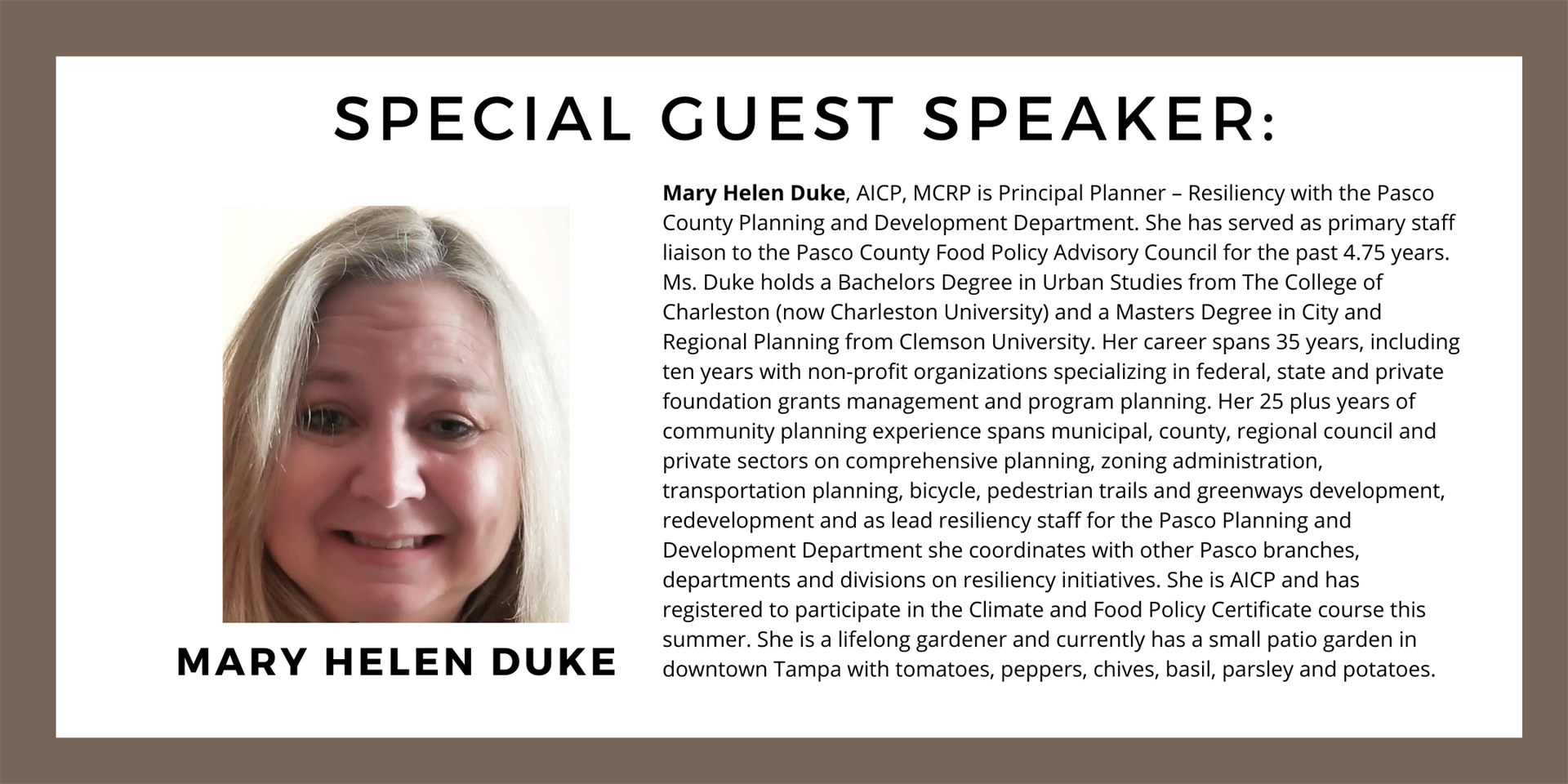
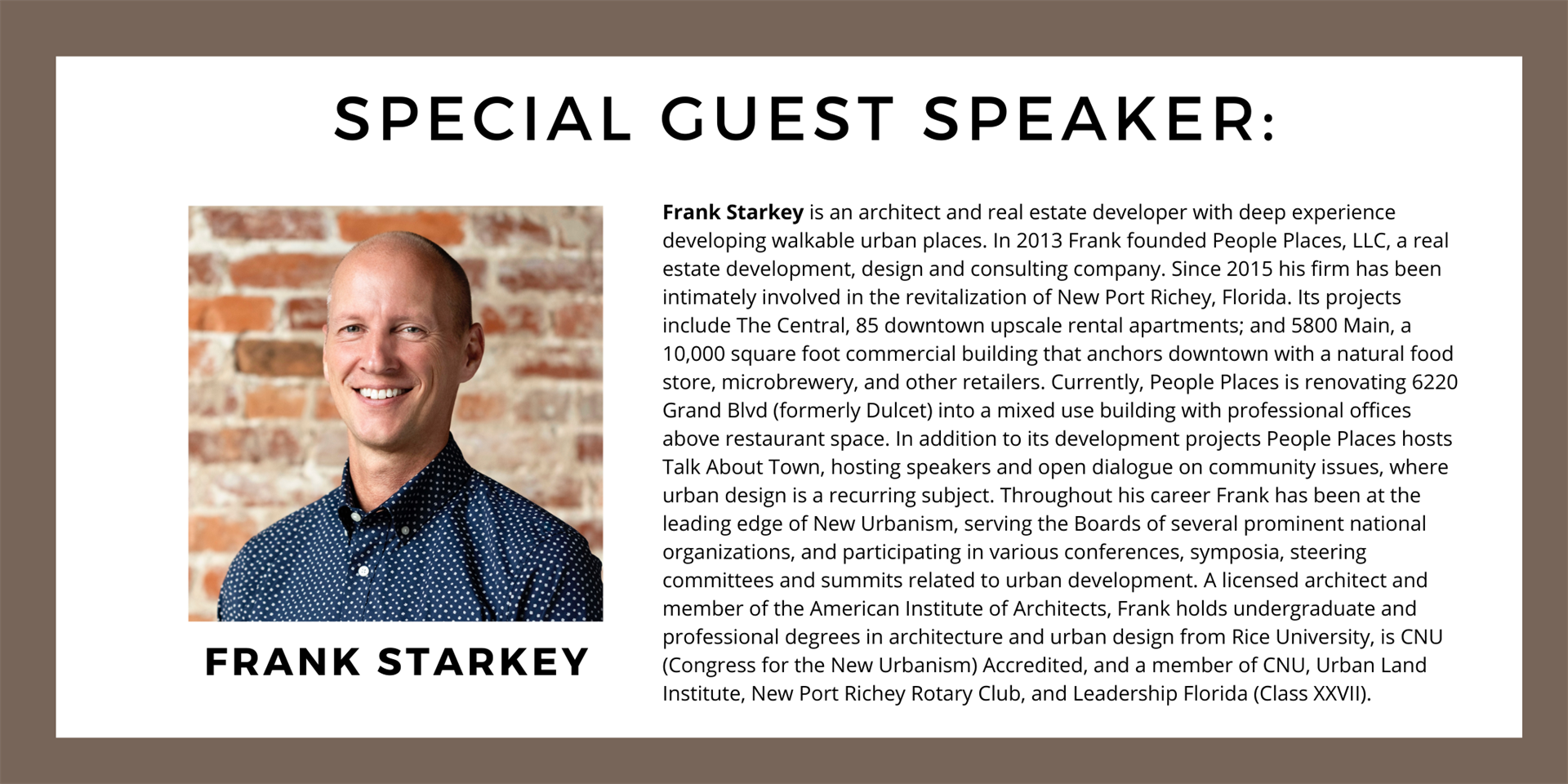
Forum Host: Dell deChant is the Associate Chair of the Religious Studies Department at the University of South Florida and a member of the Board of Directors at the Florida Food Policy Council.
Thank you to our sponsors for making this forum possible:
 FHEED provides food systems planning, GIS analysis, advocacy, and education about food systems and healthy communities.
FHEED provides food systems planning, GIS analysis, advocacy, and education about food systems and healthy communities.
Contact: Anthony Olivieri, Founder, FHEED LLC
Website: www.FHEED.com
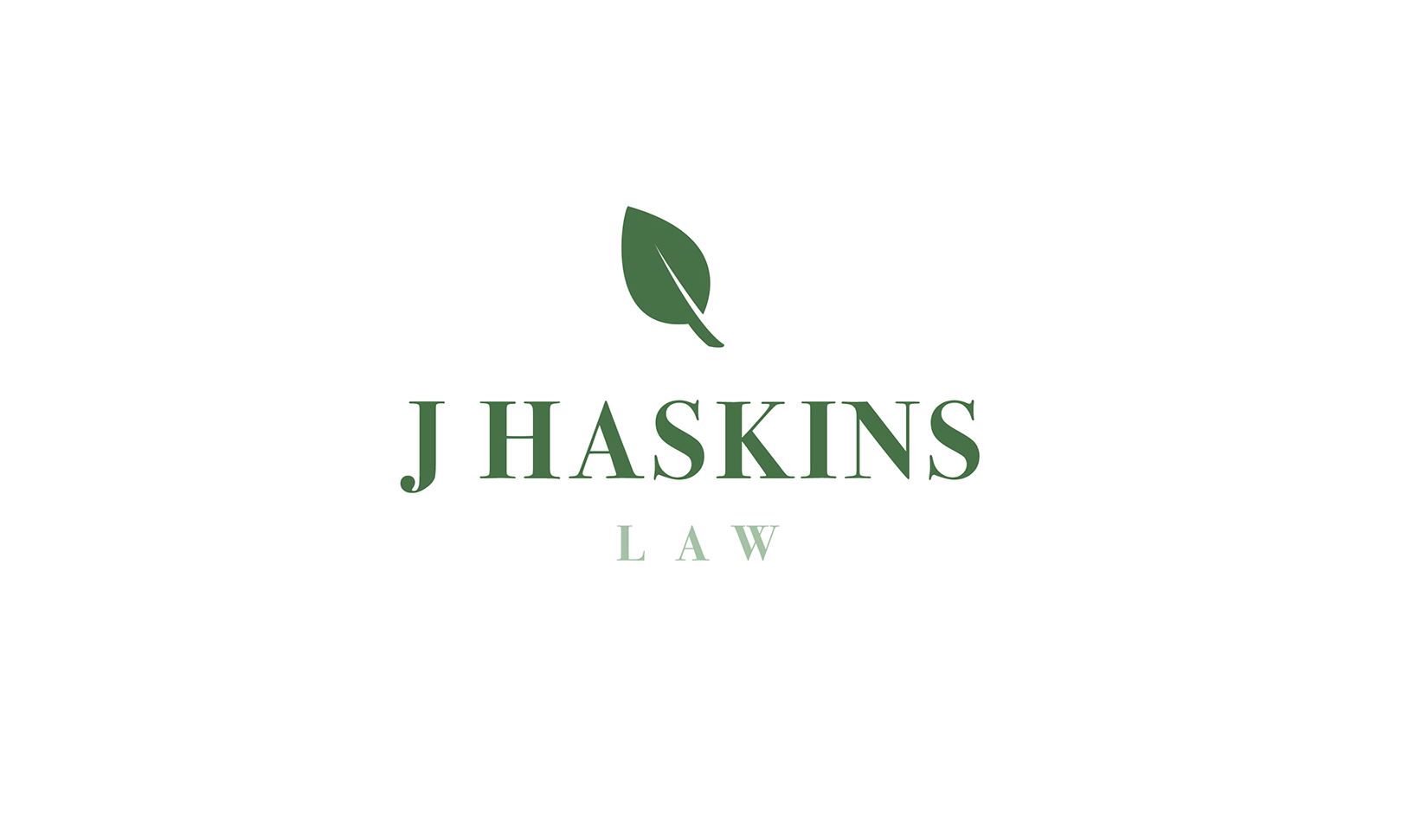 J Haskins Law, located in Tampa, empowers communities with the legal and risk management tools they need to exercise food sovereignty. The contact for J Haskins Law is Jesse Haskins.
J Haskins Law, located in Tampa, empowers communities with the legal and risk management tools they need to exercise food sovereignty. The contact for J Haskins Law is Jesse Haskins.
Contact: Jesse Haskins, Founder, J Haskins Law
Website: www.jhaskinslaw.com
The Florida Food Forum is a free event. To support our work, please consider becoming a member or making a donation. For questions or more information, contact us at: info@flfpc.org
Disclaimer: The views of the presenters do not represent the views of the Florida Food Policy Council. We are a forum for the offering and sharing of information and encourage diversity and communication within the food system.